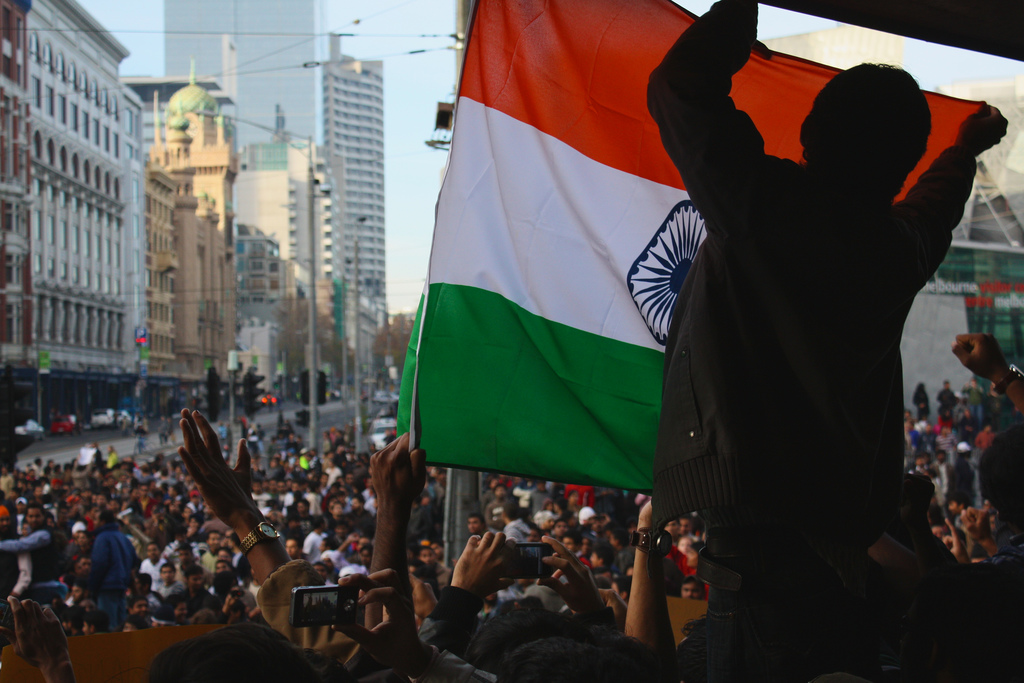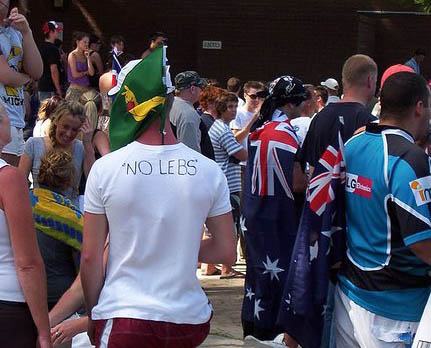As I write this piece, I’m still not entirely certain whether I should. For one thing, indecisiveness is a ghastly trait for writers – it never manages to translate well on a page. More importantly, the show I’m writing about is a mere three episodes old and engages an issue we have struggled with for eons. Racism.

Racism has become something of a dirty concept in Australia, in both life and in politics. It’s a concept that is inexplicably framed in terms of disquiet about our national identity. Dumb, Drunk & Racist is a brilliant new program but I wonder whether it’s making it difficult to move beyond discussing racism as a national character flaw?
When Dumb, Drunk & Racist first aired on ABC2 a few weeks ago, I was thrilled with the idea of a show unafraid to deal with racism. In the show, journalist Joe Hildebrand recruits four volunteers from India to traipse across Australia to find out whether or not Australia really is a hostile, racist country.
The perception that Australians are racist has steadily fermented in India after a series of highly publicised attacks on Indian students. Hildebrand’s affable and somewhat resigned attitude provides a good foil for the participants’ characteristics: Mahima’s wariness, Amer’s curiosity, Radhika’s intellectualisms and Gurmeet’s aloofness.
In the three episodes to date Hildebrand has ventured, with his four companions, into the thick of debates about the burqa, the experience of multiculturalism in contemporary Australia and the divisive nature of asylum seeker politics. It was one of only a handful of times I’ve seen somebody genuinely speak to, rather than speak for, Muslim women on television. Revisiting the sights and sounds of the Cronulla riots was gut-wrenching. And the stories of violence that unfolded in cultural jungle of Melbourne provided perspective – especially as we actually got to hear the voice of one Indian student who was attacked. It reminds us that they are more than media stories and victims.
The show is something of a social experiment – Hildebrand introduces the brave foursome to these difficult issues and we get glimpses of conversation, confrontation and confession. But the show clearly isn’t just about how ‘they’ perceive ‘us’, but rather asks us to confront who ‘we’ are as a nation. Are we racist? Is Australia a racist country?
This question is arguably the show’s greatest asset and utmost liability – it provides space for us to engage with the touchy question of racism, but from an angle that makes it impossible to do so fruitfully. It’s an annoying paradox, but one the show must buy into in order to (hopefully) wrestle its way out of it at the end.

It seems that every time incidents of assault, violence or harassment against people of Indian, Chinese or other background is reported in the media, we ask, but fail to answer, the question of whether or not the incident was racially motivated (and what could and should be done about it).
Instead, we jump to the deeply psychic matter of whether or not Australia is a racist country. And in a well-rehearsed and circuitous media cycle, we end up saying either ‘yes’ or ‘no’ with a huge qualifying ‘but’ tacked onto the end. Racism becomes either the exception or the rule in this never-ending saga of national identity.
If you look at it logically, the question is rather a useless one. It is impossible to say that an entire country is or isn’t racist. Racism isn’t some kind of unchanging absolute – it remains rather undefined, it can be inconsistent, deeply experiential or institutional.
And by focusing disproportionately on violent, affective and visible public events, as the show has done so far, we risk overlooking the hidden institutional forms of racism in our laws, policies and customs.
Dumb, Drunk & Racist undoubtedly provides a real opportunity for introspection, but asking the same question over and over again risks perpetuating a rut in thinking. Exploring racism in specificity could alleviate the tendency to nationalise our anxiety about this issue. It might be more useful to ask what racism is, why it is, where it is and how it exists.
I’ve heard some people describe the show as holding a mirror up to Australian society. But when the image we see is subsumed in an abstract debate about identity, we relinquish our ability to wrestle with collective memories and aspirations. A mirror image does not provide enough clarity to move beyond introspection towards action, nor the detail required to move beyond us/them discussions about racism.
In one interview and with the benefit of knowing what is to come in the next episodes, producer Anita Jorgensen said she hopes the show will lead to more meaningful discussions about racism. With the hope that my assessment of the show is vastly premature, I do as well.
Sheenal Singh is a media honours student at the University of Sydney. You can follow her on twitter @sheenalsingh






